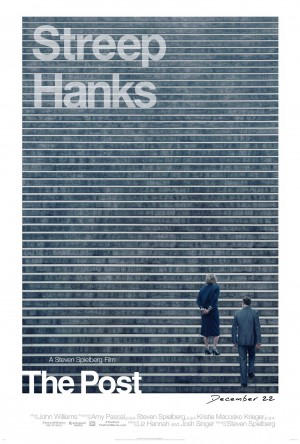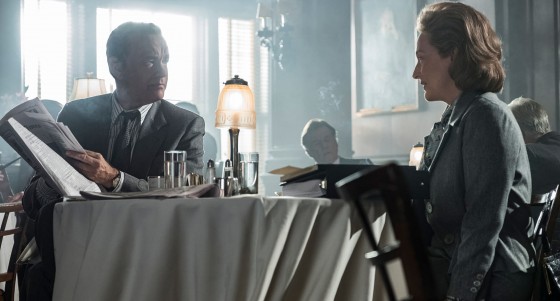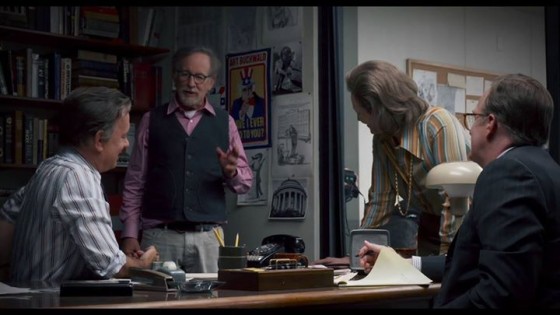Steven Spielberg’s newest film explores what happens when a paranoid President of the United States who finds himself head to head with journalists who want to uncover documents that the Commander in Chiefs of the United States told lies to the American people for more than twenty years. This revelation didn’t happen in 2017 or 2018, but rather in 1971. Deja vu is funny that way.
The Post tells the true story of The Washington Post newspaper, its publisher Katharine Graham (Meryl Streep) and editor Ben Bradlee (Tom Hanks) as they uncover The Pentagon Papers, a series of documents hidden with secrecy over the War in Vietnam. The film, like the secret documents unravels this conspiracy on why America should never have been in Southeast Asia. It questions the morality of publishing the documents and the resulting impact of doing so.
In all fairness, I will present sort of a bias toward Spielberg. As a child he was one of the first directors I fell in love with. Many of his current films are pretty average to me, but The Post just made me believe in him again. With the aid of screenwriters Liz Hannah and Josh Singer, Spielberg is able to get this story executed in not only the perfect runtime of under two hours, but also present it to audiences who may not be aware of what The Pentagon Papers actually are. For myself, if I had not known what the documents were (thank you all twelve hours of Ken Burns’ The Vietnam War), I would still have understood the pretty basic factors of the film in exploring the chaotic newsroom once they uncover journalistic gold.
Another highlight of the film itself were the overall performances not just of Streep and Hanks but of the entire supporting cast. A real highlight that stuck out was that of Bob Odenkirk who stole scenes left and right from Hanks and deservedly too. Hanks, as always is great and Streep for the first time in years is finally giving me a non-schlock role! Her performance as Graham is terrific and very subtle. No overacting, no caricature of Graham and no heavy makeup needed to give this role some powerful moments. It’s a shame this is sort of the first film to talk about who Graham was and her importance that would then lead to Watergate and subsequent investigations of that case by the Washington Post. I was surprised to learn she even existed because the big journalist movie, All The President’s Men (1976) doesn’t deal with her at all. It’s a treat to get to see somebody out of the newsroom making the decisions.
Overall, The Post ended up being one of my favorites of the year. It is more likely a condensed version of a very important step in history of power vs. press, but now when the press is always under attack and more voices want and need a platform, The Post rises to the occasion to be the film to champion freedom of the press.










Comments on this entry are closed.